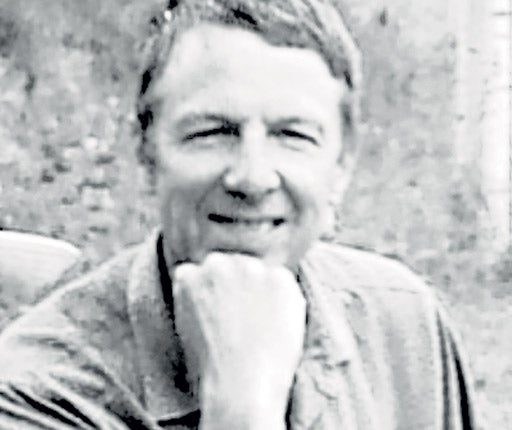William Plowden: Radical adviser devoted to improving how we are governed

William Plowden was a distinguished yet unconventional public servant who believed passionately in the need to improve the way we are governed. In particular, he sought to change the way Whitehall worked so that it became more open to outside thinking and more joined up in how it operated within the civil service departmental system. For most of his career he worked outside Whitehall, but he was shaped by his early experience at the Board of Trade, by his seven years as a committed member of the Central Policy Review Staff (CPRS) in the Cabinet Office, as well as a short and unhappy period as an under-secretary in the Department of Industry.
He came from an Establishment background: both his parents chaired influential government enquiries. He was educated at Eton and King's College, Cambridge, where he gained a first class degree in history. From there he went as a Harkness Fellow to the University of California at Berkeley, where he acquired a lifelong interest in the US. Returning to the UK he worked as a staff writer on The Economist for a year, learning no doubt to write in the crisp, compelling and beautifully crafted way which characterised everything he wrote later. However, journalism was never likely to satisfy him for long, as he wanted to make decisions in the hope that the world would become a better place, and not just to write about what others did.
He joined the civil service and as a young official destined for the top he became Edward Heath's private secretary in the Board of Trade. He joked that looking after his Minister's every need, including answering such questions as how the Minister liked his egg boiled, drove him out. He left Whitehall to become a lecturer in the Government Department at LSE, where he wrote his first book, The Motor Car and Politics in Britain. Had he stayed, he undoubtedly would have had a successful academic career, but he chose to return to Whitehall as a founder- member of the CPRS, known as the Think Tank. By then, his former boss had become Prime Minister and had drawn him into discussions about setting up a small team of policy analysts to advise ministers collectively about the complex issues they faced.
Plowden became a central figure in the work of the CPRS from 1971 until he left in 1977. He relished the opportunities it provided to promote evidence-based thinking in policy-making. He argued for better research and improved statistical data within Whitehall and for drawing on sources from outside government. He saw the dangers of entrenched departmental cultures, impervious to what was happening in other departments. Even with greater openness and a more joined-up approach, he was convinced of the value of co-ordination at the centre. This required clarity about strategy and a consistent approach to how policies across Whitehall could contribute to strategic goals, as well as more emphasis on the long term. No one understood this better than Plowden and he worked tirelessly to expose muddled thinking, short-termism and departmental point-scoring. He was quick and analytical in developing alternative ideas and possible solutions. He was able to range widely across the policy spectrum and did so, but his main contribution was to social policy. He led the CPRS initiative on the "Joint Approach to Social Policy" and was the author of a number of reports on the distribution of resources between social programmes and whether they met ministers' priorities. He was persuasive about the need to make clear choices and to study the impact of decisions on different client groups in the welfare system, rather than focusing on the providers.
This may sound well-intentioned but over-earnest. Not so – Plowden was warm and funny, unpompous and self-deprecating. He could be critical, but only courteously. Working with him was a great joy.
The CPRS suited him perfectly. Returning to departmental work did not, and he left the civil service to head the Royal Institute of Public Administration, where he developed what he had started in the CPRS outside Whitehall, widening into the rest of the public sector, including local government and the NHS. This was followed by a period in New York where he ran the UK Harkness Fellowships programme with great success. When he returned to London, he became an independent consultant specialising in advising the governments of developing countries on public-sector reform. He travelled widely and wrote extensively, contributing to a wider understanding about the nature of Cabinet government around the world. He renewed his links with LSE. He also promoted the value of the voluntary sector in various ways.
For 50 years, he and his wife Veronica were the closest of couples, devoted to their children and appreciative of their friends. They were wonderful hosts, whether in Gloucestershire or Brixton. He loved walking because that meant talking, and the conversations were rich, covering films, theatre, books and music as well as politics, people and places. No one could have wished for a better friend.
Tessa Blackstone
William Julius Lowthian Plowden, civil servant, government adviser and writer: born London 7 February 1935; married 1960 Veronica Gascoigne (two sons, two daughters); died 26 June 2010.
Join our commenting forum
Join thought-provoking conversations, follow other Independent readers and see their replies
Comments
Bookmark popover
Removed from bookmarks